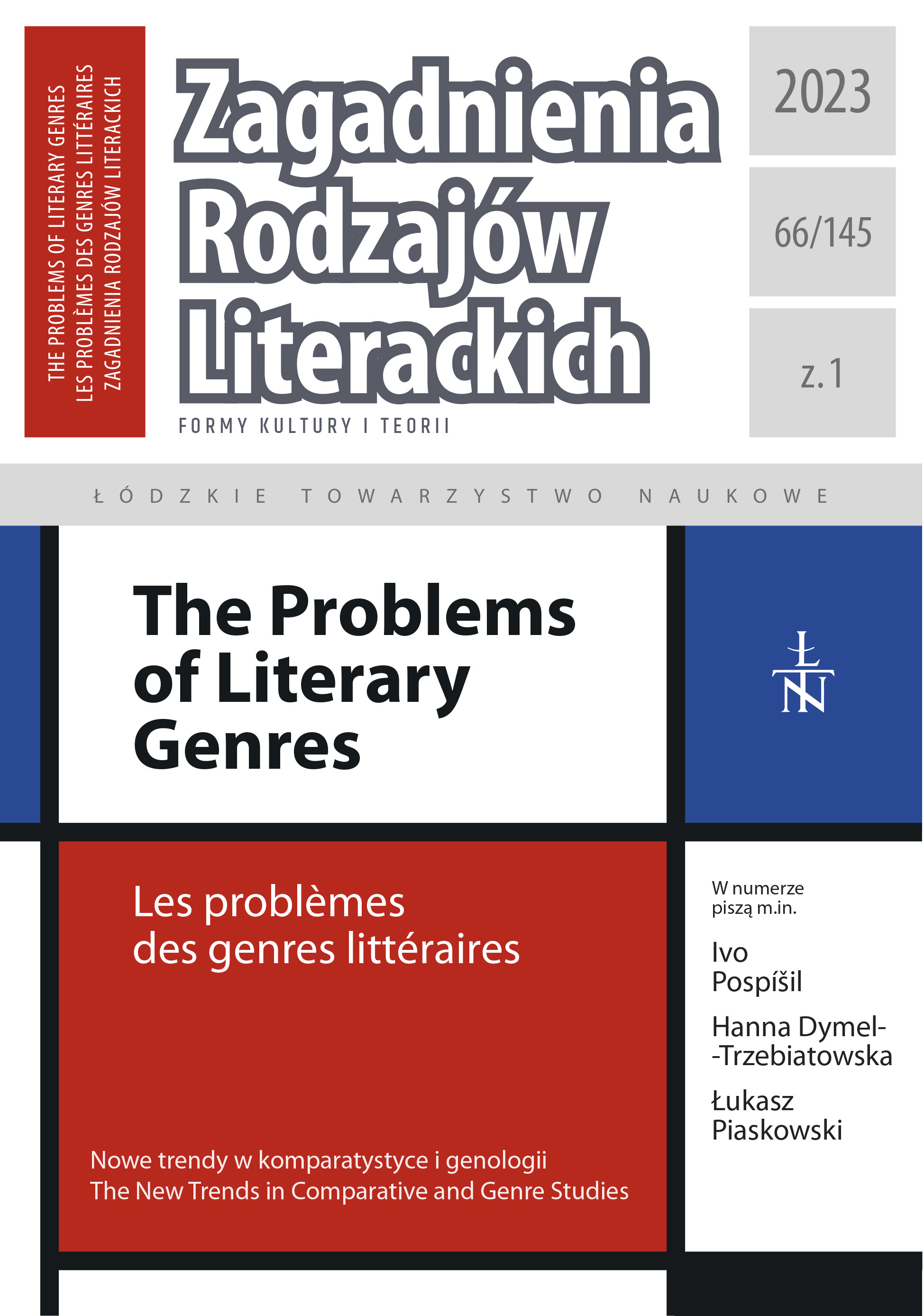Diachronic Asymmetry as a Comparativist Problem
DOI:
https://doi.org/10.26485/ZRL/2023/66.1/3Słowa kluczowe:
comparative literary; diachronic asymmetry; François Villon; Karel Hynek MáchaAbstrakt
This article offers an unpopular comparativistic method that does not fit into the previously known conceptual frameworks of comparative literature. In order to be more clearly distinguished from the hermeneutic practices existing in comparativistics, a brief overview of some basic views on the subject of comparative literature has been made. Thus, it becomes clear that we not only ignore the contactological aspect, but in order to apply this approach, it is necessary to prove the absence of any form of direct or indirect interaction. In terms of typology, we apply the requirement of non-appropriation to a common cultural area or direction. The manifestations of typological aspects (e.g., similar motives or characteristics of the character model) are seen as a consequence and not as a prerequisite for carrying out a comparativistic procedure. The proposed model is illustrated by paralleling two diachronously different artistic worlds for which there is factual evidence that they meet the criteria set by us — those of François Villon and Karel Hynek Mácha. We only consider the proposed comparativistic modus as possible without ignoring others. On the contrary, the tendency to extend the field of comparative literature offers us new options for rethinking dialogism not only as a direct explanation of interliterary relationships, but also as a system of returning questions about human existence at different times and in different national contexts.
Liczba pobrań
Bibliografia
Bakhtin Mikhail Mikhailovich (1965), Tvorchestvo Francois Rabelais i narodnaya kuľtura srednovekov’yа i Renessansa, Hudozhestvennaya literatura, Moskva.
Cholakova Zhorzheta (2016), Genii i nesretnitsi — Francois Villon i Karel Hynek Macha, “Slavyanski dialozi” no. 18, p. 69–80.
Derrida Jacques (2008), Who or What Is Compared? The Concept of Comparative Literature and the Theoretical Problems of Translation, transl. E. Prenowitz, “Discourse” vol. 30, no. 1/2, Special Issue: “Who?” or “What?”, p. 22–53.
Étiemble René (1963), Comparaison n’est pas raison. La crise de la litterature comparee, Gallimard, Paris.
Gautier Théophile (1910), Francois Villon [in:] The Complet Works of Theophile Gautier, vol. 2, The grotesques, Bigelow, Smith, New York, p. 14–58.
Hadzhikosev Simeon (2000), Zapadnoevropejska literature, Chast I, Siela, Sofia.
Heidmann Ute (2010), Enjeux d’une comparaison differentielle et discursive. L’exemple de l’analyse des contes [in:] Les Nouvelles Voies du comparatisme, eds. H. Roland, S. Vanasten, Academia Press, Gent.
Heidmann Ute (2017), Pour un comparatisme differentiel [in:] Le Comparatisme comme approche critique, vol. 3, Objets, methodes et pratiques comparatistes, Classiques Garnier, Paris, p. 31–58.
Jakobson Roman (1985), The Kernel of Comparative Slavic Literature [in:] Comparative Slavic Studies. The Cyrillo-Methodian Tradition, Mouton Publishers, Berlin–New York–Amsterdam, p. 1–65.
Van Tieghem Paul (1931), La litterature comparee, Armand Colin, Paris.
Pobrania
Opublikowane
Jak cytować
Numer
Dział
Licencja
Prawa autorskie (c) 2023 Łódzkie Towarzystwo Naukowe i autorzy

Utwór dostępny jest na licencji Creative Commons Uznanie autorstwa – Użycie niekomercyjne – Bez utworów zależnych 4.0 Międzynarodowe.







